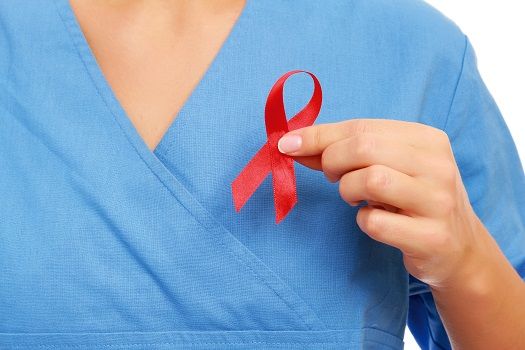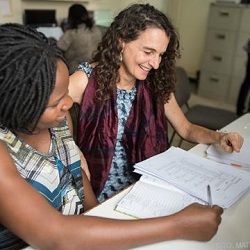How to Tell a Child He or She Has HIV
The HIV conversation isn't easy, but the intervention method may soften the blow.

Delivering bad health news is an inescapable part of being a doctor. It can also be part of being a parent and it’s no easier then, a San Francisco researcher found. The task may be particularly difficult when it comes to disclosing that a child has the human immunodeficiency virus (HIV).
Rachel King, PhD, MPH, has been trying to help. Previous studies by King and colleagues found that many parents or caregivers are looking for such assistance.
“It’s very difficult to tell a child he or she has HIV because it has to do with sex and death and the fact that the parent passed HIV to the child,” King, an academic coordinator at the University of California, San Francisco (UCSF) Global Health Sciences, said in a news release.
King (pictured below) collaborated with researchers from the University of Connecticut to test an interventional approach to delivering the news an HIV-positive diagnosis. They came up with an intervention, Dialogue Intervention to Support Communication & Openness-Kids (DISCO). They are using it in Uganda, where an estimated 150,000 children are infected with the virus.

The DISCO approach consists of holding three group meetings for kids’ parents, as well as one-on-one counseling sessions for the parent/caregiver, the child, and then a session for the two together. The meetings took place at the institution where the children received their antiretroviral therapy (ART), and the team attempted to schedule the treatments and meetings at the same time. The group meetings taught the parents/caregivers how to talk about tough topics with their kids. Although they learned appropriate ways to disclose the HIV-positive status to their child, the discussion touched on other subjects as well.
A total of 300 pairs of parents/caregivers and children were recruited for the study, half of which were in the intervention group. To measure the effectiveness of the DISCO disclosure method, the researchers looked at the caregivers’ anxiety and depression, and the children’s understanding of HIV and treatment adherence.
Not surprisingly, they found that parents were scared to tell their kids that they have HIV. Many parents made up embellished stories, most likely trying to make the disclosure process easier.
A positive finding was that the parents/caregivers agreed that they liked the fact that they got to talk to other adults about the uncomfortable situation.
“Many caregivers were grateful for the group sessions, and were able to disclose [the diagnosis] to their child much more quickly,” King said. She noted that most of the caregivers told their kids about their HIV-positive status by the end of the intervention.
The next step with the DISCO intervention is to see how it can be scaled up and implemented throughout Uganda’s clinics. A discussion with the Ugandan Ministry of Health is needed to bring that to life, King detailed.
The news release and photo of King were provided by UCSF.
Related Coverage:
Researchers Challenge CDC’s HIV Prevention Guidelines
Why Do Some People Get HIV After Exposure But Others Don’t?
Not Enough HIV Screenings in People with Severe Mental Illnesses